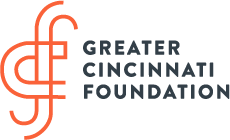COVID-19 Pandemic Intensifies Housing Challenges
Our region’s well-documented lack of affordable housing – more than 40,000 units – has been a key factor in Greater Cincinnati Foundation’s (GCF) focus on racial equity. The lack of affordable housing can be the linchpin for many other issues contributing to racial inequality, from education and employment opportunities, lack of transportation and physical and mental health challenges to building financial equity as a means to escape poverty.
Through years of initiatives, including our current Affordable Housing Impact Investment Pool (AHIIP), GCF is investing in results-driven projects and addressing systemic inequities to unleash the maximum potential of our region to the benefit of all of us.
The COVID-19 pandemic has brought an even greater urgency to this work. Almost overnight, thousands of jobs evaporated. The impact has been particularly devastating to a population already teetering on the edge of financial disaster: single mothers of color. They’re most at risk for evictions and homelessness.
GCF is focusing extensive efforts on two fronts as we pivot to today’s realities. First, we’re exploring ways to address the immediate issue of job losses in our most vulnerable communities by supporting small business loans to businesses in neighborhoods most effected. One opportunity we’re evaluating is a partnership with a well-established community development financial institution; we will be able to report more on that soon.
Additionally, we have joined with the Cincinnati Development Fund (CDF) to boost our current impact investment resources. Thanks to our partnership, CDF was recently awarded a $900,000 Capital Magnet Fund matching grant through the Department of the Treasury to support affordable housing projects in our region.
In addition to GCF’s committed $1 million, we have a goal of raising an additional $4 million from donors and partners to activate this matching capital to begin bridging our region’s affordable housing gap. We invite you to join us through a grant or impact investment in AHIIP. Please contact your philanthropic advisor for further information.

